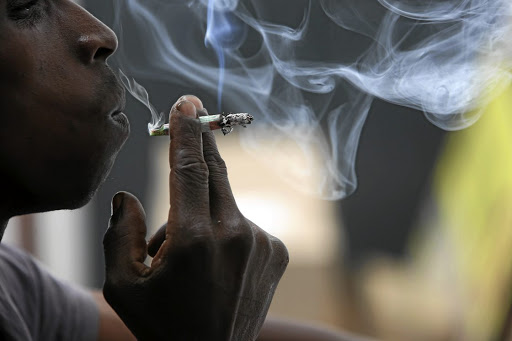This July, at the World Tobacco Conference in Ireland, Nigeria became the first African nation to officially regulate the depiction of tobacco use, ritual killings, narcotics and so-called “money rituals” in media content.
The decision drew wild praise from civil society groups, who hailed it as a bold step towards preserving public health and cultural values. This complements decisive efforts by the National Film and Video Censors Board (NFVCB)—which regulates films, music videos, and skits produced in the country—to scale back the glamorisation of harmful behaviour in entertainment media.
A turning point in media advocacy
Prior to this policy, an industry-wide movement, #SmokeFreeNollywood, had been gaining momentum. Initiated by the Corporate Accountability and Public Participation Africa (CAPPA), with support from the NFVCB, the campaign assembled filmmakers, directors, actors, and scriptwriters, pushing for minimal portrayal of smoking in films, stressing its negative impacts on young consumers.
Instead, the regulatory authorities advised stakeholders to depict the health consequences of consuming tobacco products.
Community engagement
Besides the #SmokeFreeNollywood campaign, other civil society organisations such as CAPPA and NTCA have lobbied for the implementation of the 2015 National Tobacco Control Act (NTCA) in accordance with the WHO’s Framework Convention on Tobacco Control.
Part of their advocacy has centred on securing enough funding, including an annual ₦300 million allocation, to adequately pursue tobacco control regulations nationwide.
Beyond policy, the organisations continue to offer training for health workers and mobilise policymakers to make tobacco control a public-health emergency in Nigeria.
These collaborative activities have leveraged media literacy and grassroots sensitisation. For example, the NFVCB, along with CAPPA, has led sensitisation across schools, places of worship, and youth organisations to deepen awareness of the hazards of smoking and ritual acts.
These campaigns not only target the youth but also parents, community elders, and teachers in a bid to spark collective action and build resistance to harmful cultural norms promoted through popular media. This advocacy has helped many youths to critically analyse the media they consume as well as expect better responsible storytelling from filmmakers.
There are signs that the message is getting through. Many Nollywood producers are revisiting movies that feature rituals or smoking. They depict the serious implications of such acts. Also, they now put disclaimers and age classifications on content that deals with sensitive material to help audiences make informed viewing choices.
In addition, a growing number of films are weaving in health-conscious messaging into their narratives, illustrating not only the physical dangers of smoking but also the psychological and social toll of ritual-based violence. These storytelling choices aim to inspire young viewers to make more responsible life decisions.
Challenges remain
While the movement is gaining traction, barriers like inadequate funding, limited rollout capacity and resistance from parts of the creative industry threaten to slow progress. Some filmmakers fear that regulation could infringe on creative freedom or commercial appeal.
Still the broad coalition of government bodies, media stakeholders and advocacy groups offers a hopeful model. Rather than relying solely on censorship, this approach leverages education, community engagement, and self-regulation to create a safer, more socially responsible film landscape.
At its core, this effort is about balance—protecting the vibrancy of Nigeria’s creative industry while ensuring it doesn’t contribute to public health crises or the erosion of social values.
If sustained, the NFVCB-led reforms, supported by grassroots advocacy and forward-thinking industry players, could transform Nollywood into not just a source of world-class entertainment but also a vehicle for public good.
In July, at the World Tobacco Conference in Ireland, Nigeria became the first African nation to regulate media portrayals of tobacco use, ritual killings, narcotics, and "money rituals." This move was applauded by civil society groups as it aims to protect public health and cultural values. The National Film and Video Censors Board (NFVCB) collaborated in this effort to reduce the glamorization of harmful behaviors in media. Prior to this policy, the #SmokeFreeNollywood campaign, driven by Corporate Accountability and Public Participation Africa (CAPPA) and NFVCB, called for minimal depiction of smoking in films, emphasizing the negative effects on young viewers, and encouraged the portrayal of health consequences instead.
Community engagement played a significant role, with organizations like CAPPA and NTCA advocating for the 2015 National Tobacco Control Act and securing necessary funding for tobacco control. These groups also conducted training for health workers and engaged policymakers to prioritize tobacco control. The NFVCB and CAPPA spearheaded efforts to raise awareness in schools and communities, targeting youth, parents, and teachers to promote responsible media consumption. This advocacy has led Nollywood producers to revisit films involving rituals or smoking, emphasizing their serious implications, and including disclaimers and age classifications.
Despite these advances, challenges like limited funding, rollout capacity, and resistance from parts of the creative industry threaten progress. Some filmmakers are concerned about creative freedom and commercial appeal. However, the collaboration among government bodies, media stakeholders, and advocacy groups provides a hopeful model, balancing creative vibrancy with social responsibility. If sustained, these NFVCB-led reforms, supported by grassroots efforts, could turn Nollywood into a source of both entertainment and public good, avoiding contributions to public health crises and erosion of social values.






